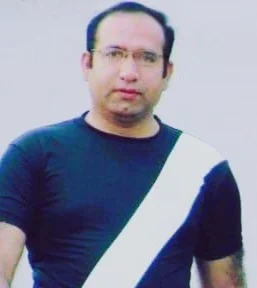Table of Contents
Toggle
- How has Telegram managed to achieve such rapid growth since its establishment in 2013?
- What are the key features and functionalities that distinguish Telegram from other messaging platforms?
- What are some of the criticisms leveled against Telegram’s security model, and how has the platform addressed them?
- How has Telegram responded to censorship and bans in various countries, and what stance has it taken on government demands for access to user data?
- What role has Pavel Durov played in the development and success of Telegram, and how does his reputation contribute to the platform’s appeal?
- What are some of the legal challenges Telegram has faced, particularly regarding its operations in Russia and other countries?
- How has Telegram’s user base evolved over time, and what factors have contributed to its significant user growth?
- What is the perception of Telegram among different user groups, and how does it balance its reputation as a secure platform with allegations of facilitating illicit activities?
- How does Telegram’s infrastructure support its massive user base, despite having a relatively small number of full-time employees?
- What are the implications of Telegram’s unique registration and jurisdictional choices, and how have they influenced its operations and legal standing?

Introduction:
Telegram, established in 2013 and headquartered in the United Arab Emirates, has swiftly risen to prominence in the realm of instant messaging. With an impressive user base surpassing 800 million individuals, the platform has distinguished itself as the preferred choice for secure and versatile communication on a global scale. Its rapid growth underscores its effectiveness in providing users with a reliable and feature-rich messaging experience.
Development and Infrastructure:
Telegram, a cloud-based instant messaging and voice over IP service, is the brainchild of Telegram Messenger LLP, a privately held company based in London, United Kingdom.Created by Russian visionary Pavel Durov, the platform provides client applications compatible with a range of operating systems such as Android, iOS, Windows Phone, Windows NT, macOS, and Linux. Users can seamlessly exchange messages, photos, videos, stickers, audio, and files of any type.
Features and Functionality:
Telegram boasts a comprehensive suite of features and functionalities, catering to diverse communication needs. While the client-side code is open-source, the server-side code remains closed-source and proprietary. Additionally, Telegram provides APIs to independent developers, fostering a thriving ecosystem of third-party integrations and extensions. As of March 2018, the platform reported 200 million monthly active users, with an annual growth rate exceeding 50%.
Security Measures and Criticisms:
Telegram prioritizes security, employing client-server encryption for messages and media by default. It also offers end-to-end encryption for voice calls and optional “secret” chats between individual users. However, the platform has faced criticism from cryptography experts for its security model, particularly regarding the storage of contacts, messages, and decryption keys on servers. Pavel Durov has defended this approach, citing its benefits in avoiding third-party insecure backups and facilitating access to messages and files across devices. Critics have also raised concerns about Telegram’s custom-designed encryption protocol, questioning its reliability and security.
Controversies and Challenges:
Telegram has encountered censorship and bans in several countries, accused of facilitating illegal activities such as protests and terrorism. Additionally, the platform has faced pressure to comply with government demands for access to user data and communications, a stance it has resisted, citing user privacy and security concerns.
Telegram founder’s Introduction:
Telegram, launched in 2013 by the Durov brothers, Nikolai and Pavel, who were also the creators of VK, marks a significant milestone in the realm of digital communication platforms.
Pavel Durov's Personal Brand:
A crucial aspect of Telegram’s genesis is the prominent role played by Pavel Durov, its main founder and advocate. Durov’s established reputation in the CIS (Commonwealth of Independent States) countries, primarily due to his involvement in VK (VKontakte), a leading social network often dubbed as the local equivalent of Facebook, is noteworthy.
Durov's Reputation and Innovation:
Pavel Durov’s persona in the CIS region extends beyond being an IT businessman; he is perceived as an innovative and forward-thinking entrepreneur. His contributions to the development of VK, coupled with his blogging activities where he occasionally shared innovative ideas and proposals, have bolstered his reputation as a progressive-minded individual.
Community Perception and Response:
Within the Russian internet community, Durov garners significant favor, with many attributing the growth of VK to his efforts and considering him instrumental in advancing Russian internet services and digital community development. The sentiment surrounding Durov’s departure from VK, particularly when it was acquired by Mail.ru Group, was predominantly negative. Even today, as VK undergoes changes such as the introduction of paid subscriptions to music or pre-video advertisements, there remains a sentiment of nostalgia for the Durov era, with many lamenting that “VK used to be better with Durov.”
History
Information | Details |
Company Registration | Telegram is registered as a company in the British Virgin Islands and as an LLC in Dubai, UAE. |
Headquarters | Initially headquartered in Berlin, Germany, Telegram moved to different jurisdictions later. |
Team Locations | Telegram had employees in Saint Petersburg, Russia, from 2014 to 2017, and is now based in Dubai since 2017. |
Legal Issues | In April 2018, Russian court ruled to block Telegram in Russia. |
User Growth | On 5 October 2021, Telegram gained over 70 million new users due to an outage affecting Facebook and its affiliates. |
Perception and Usage | Telegram has been labeled as “social media for organized criminals” but is seen as a safe haven for citizens in repressive regimes. |
Involvement with Militant Groups | Telegram allows various Iran-linked militant groups, although it has rules against terrorist channels. |
User Base and Infrastructure | As of 2024, Telegram reportedly has 900 million monthly active users and more than 80,000 servers globally. |
Employee Count | Despite its massive user base, Telegram operates with only about 50 full-time employees. |
Conclusion:
Telegram’s journey from its inception in 2013 to its current status as a leading digital communication platform reflects a dynamic landscape shaped by innovation, controversy, and resilience.
From its humble beginnings, Telegram rapidly garnered attention, boasting a user base exceeding 800 million individuals worldwide. Its commitment to security, versatility, and user experience has solidified its position as the preferred choice for many seeking reliable messaging solutions.
The platform’s founder, Pavel Durov, has played a pivotal role in shaping its trajectory. Durov’s visionary leadership and reputation as an innovative entrepreneur have been instrumental in Telegram’s success, building upon his previous achievements with VK.
However, Telegram has not been without its challenges. Legal battles, controversies surrounding censorship and user privacy, and scrutiny over its perceived role in facilitating illicit activities have marked its journey. Yet, amidst these challenges, Telegram has persevered, adapting to shifting landscapes and emerging as a sanctuary for those seeking uncensored communication channels.
Looking ahead, Telegram’s continued growth and influence remain undeniable. With an expanding user base, robust infrastructure, and a commitment to user privacy, Telegram is poised to maintain its status as a key player in the digital communication sphere, shaping the way individuals connect and interact in an increasingly interconnected world.




Prof. Mian Waqar Ahmad
Prof. Mian Waqar Ahmad, a dynamic force straddling the realms of academia and digital media. As a distinguished Lecturer in Information Sciences, he imparts knowledge within the academic sphere, igniting the minds of his students. Beyond the classroom, Prof. Mian Waqar Ahmad dons the hat of a seasoned blogger on Worldstan.com, where his insightful posts delve into the intricacies of information sciences. His digital footprint extends even further as a YouTuber, leveraging the platform to share his expertise and make complex concepts accessible to a global audience. Prof. Mian Waqar Ahmad’s journey embodies the fusion of traditional education and contemporary digital outreach, leaving an indelible mark on the evolving landscape of information sciences. Explore his world at Worldstan.com and witness the convergence of academia and the digital frontier.
